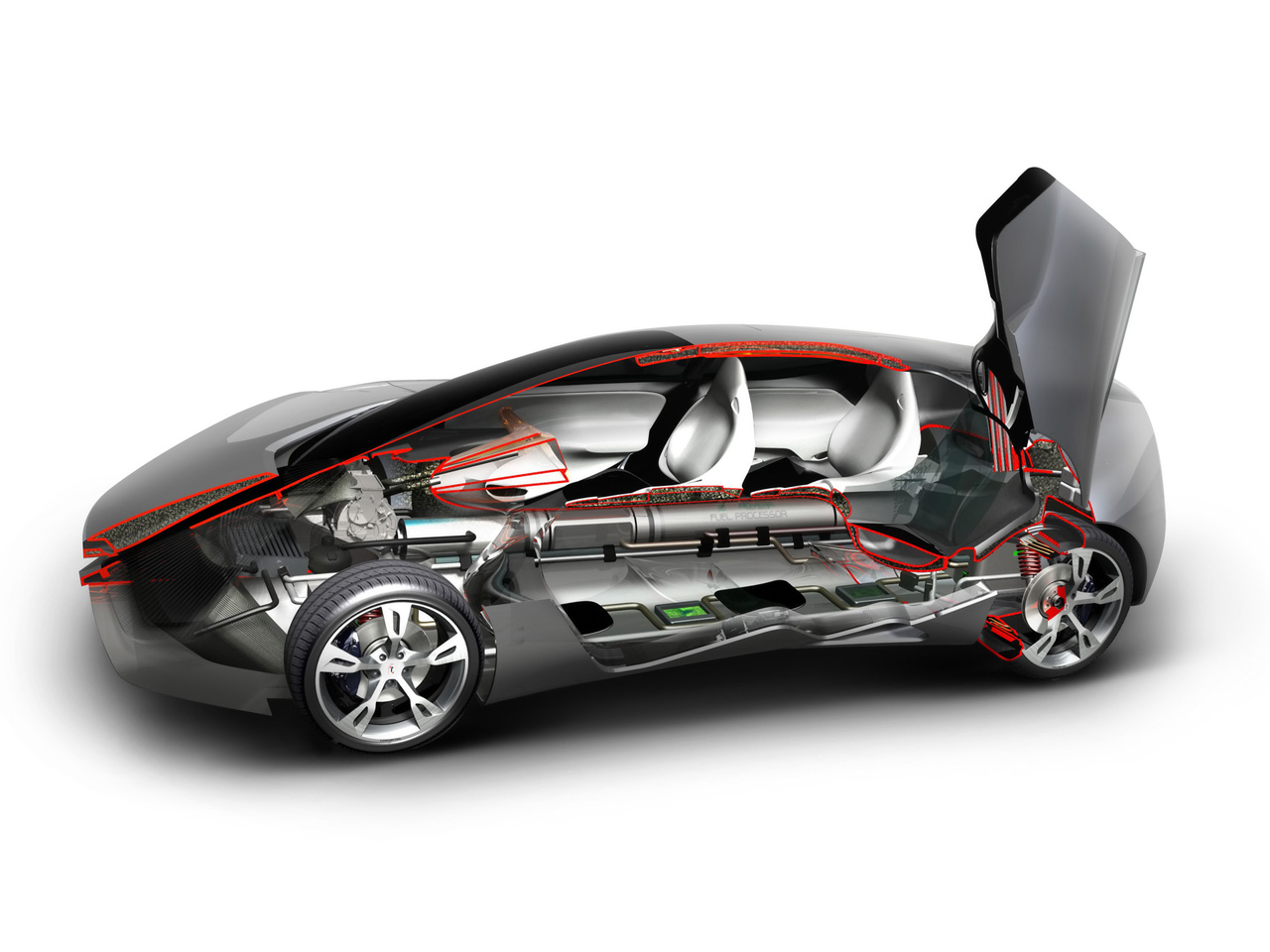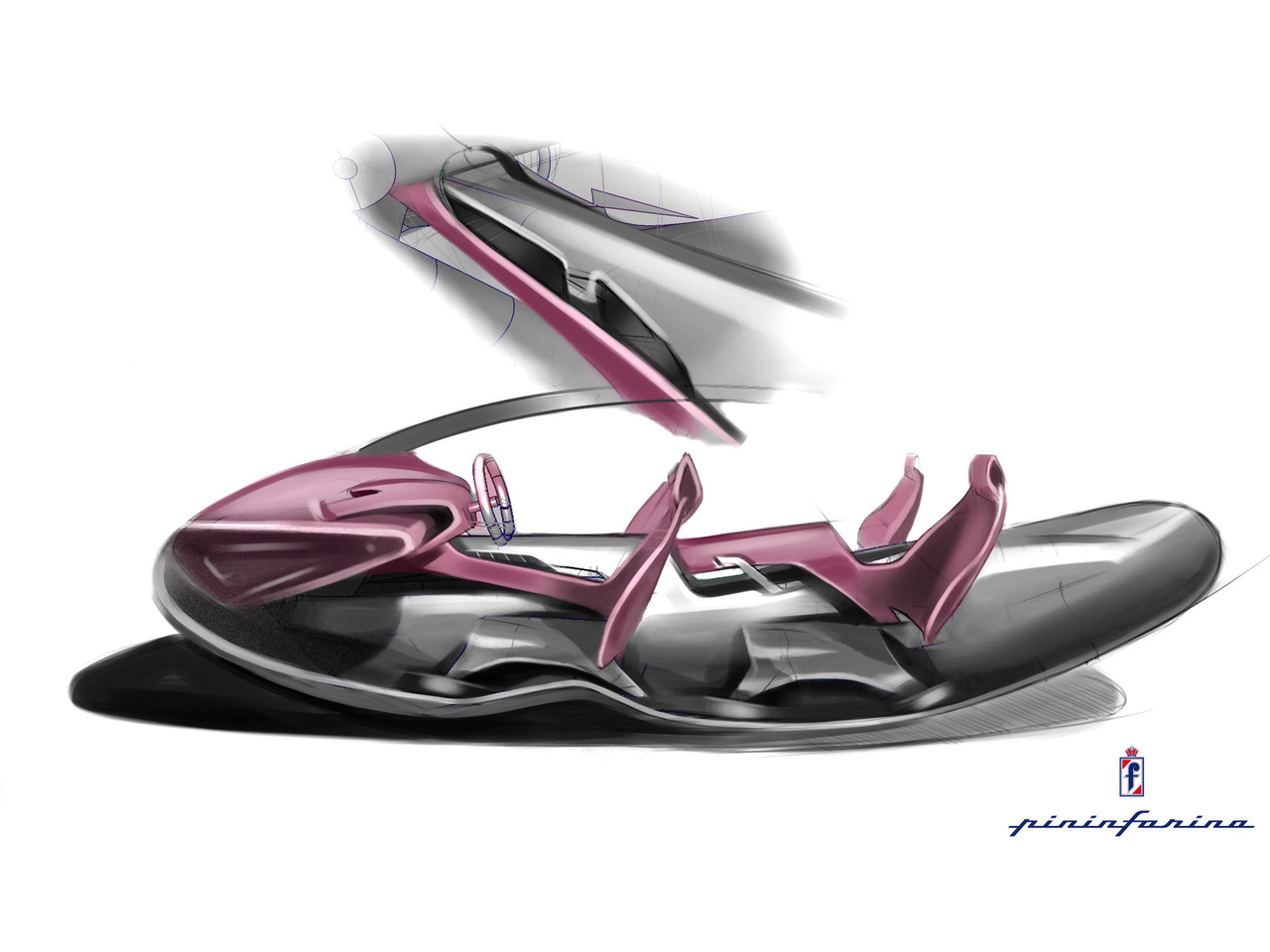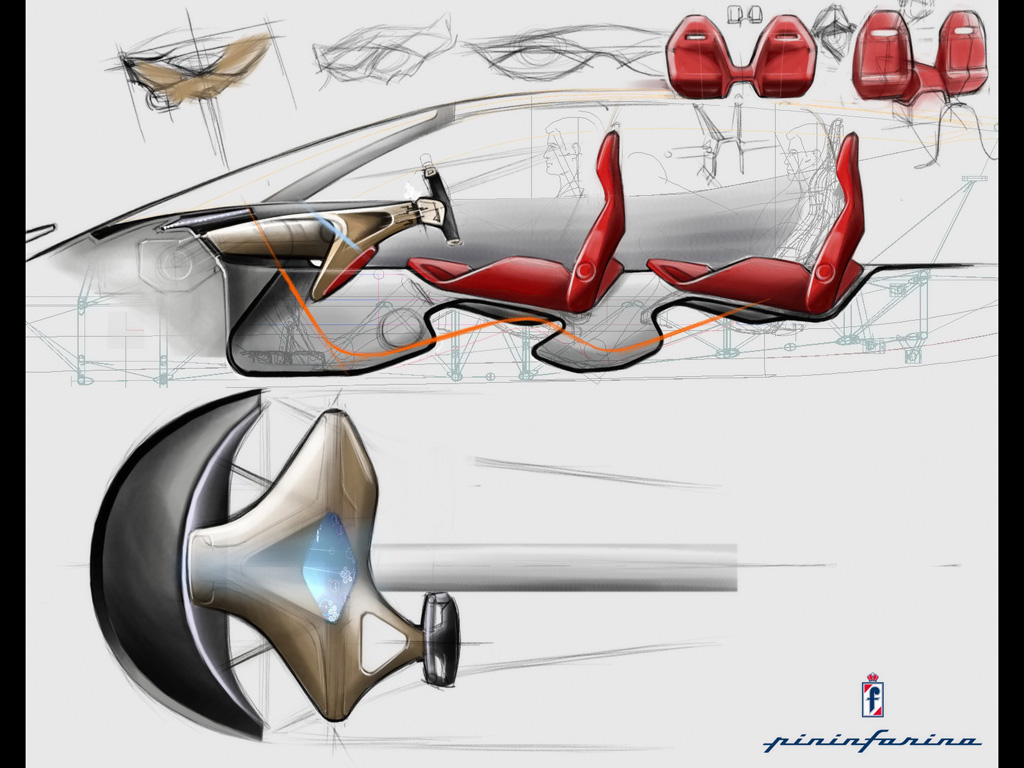2008 Pininfarina Sintesi Concept
|
Price |
-- |
Production |
-- | ||
|
Engine |
electric |
Weight |
-- | ||
|
Aspiration |
-- |
Torque |
-- | ||
|
HP |
-- |
HP/Weight |
-- | ||
|
HP/Liter |
-- |
1/4 mile |
-- | ||
|
0-62 mph |
7.5 seconds |
Top Speed |
154 mph |
(from Pininfarina
Press Release) Pininfarina unveils the Sintesi, the new
concept car that explores the car of the future
A number of cars have their world premire on the stands of
Pininfarina clients: the new Ford Focus Coupe-Cabriolet, the Alfa
Spider Model Year 2008 and the Maserati Granturismo S.
Sergio Pininfarina inducted into the European Automotive Hall of
Fame.
Turin, February 29, 2008 - Three years after the Birdcage 75th,
Pininfarina returns with the Sintesi, a new concept car that
explores ideas and solutions for the car of the future.
The Sintesi is not only a testament to the creativeness of our
design team, declared Andrea Pininfarina, Chairman and CEO of the
Group, but it reiterates our historical ability to anticipate
stylistic and technological solutions that we will see in the cars
of the future.
Before being unveiled at Geneva, the Sintesi has been the subject of
a teaser campaign (www.sintesi.pininfarina.com) which has attracted
a great deal of interest online among specialist journalists,
scoring more than 250,000 hits on Google.
The Sintesi is a sports car with four doors and four seats,
developed by a highly innovative approach: it does not consider the
car as a shape that covers the mechanicals, but one that gives a
shape to the mechanicals around the passengers, starting from the
latter. This approach, which is known as Liquid Packaging, has
overturned traditional volumetric balances, improving weight
distribution and lowering the centre of gravity, which are important
elements for driving dynamics.
This was made possible
by close collaboration with Nuvera, which developed the Quadrivium
Fuel Cells system, the various components of which were distributed
around the car, with four fuel cells positioned near to the wheels.
The result is that the space for passengers is much more generous
in proportion to the total volume of the car without detracting
from the sporty line with its relaxed, elegant profile which is
sleek, tapered and aerodynamic (Cd = 0.27). The modular nature of
the fuel cells, combined with the batteries and a sophisticated
overall electronic architecture (developed with PI Shurlok), allows
for modular use of the available power depending on driving
conditions.
Our source of inspiration, said Lowie Vermeersch, Pininfarina
Design Director, was mans freedom over technology, a car in which
technology gives creative freedom back to the designer and allows us
to explore new forms and future scenarios. But at the same time, we
did not want everything to be limited to a flight of fancy, we
wanted our approach to be very concrete. Which is why we combined
and tested our ideas with the innovative technologies provided by
our partners in this project.
The Sintesi was imagined in a setting of Transparent Mobility which,
thanks to Clancast, the radio technology developed by Reicom after
years of research, envisages that all cars act as nerve cells,
creating a dynamic communications network managed by a disseminated
intelligence. A real living connective tissue on which data and
information about traffic and security, audio and video, Internet
and cross-media content can travel. A concept of wireless
connectivity that establishes a continuous, transparent dialogue
between the town, the road and the vehicles that we will drive in
the future, without limiting the motorists autonomy, but increasing
his sense of freedom.
This futuristic scenario, based on concrete, existing technology,
opens the door to advanced active safety solutions which in turn
have made it possible to design the car with volumes that are not
conditioned by todays bulky passive safety systems.
The important role played by electronics in the Sintesi project is
also evident in the design of the interior and the lights. Inside,
the facia symbolises the flow of information in which the car moves.
Created as a single semi-transparent piece by Materialise, using the
additive technology of personalised manufacturing, its shape
disseminates the information around the passenger compartment thanks
to the intuitive use of colour and light.
The lights become focal points through which the car dialogues with
its environment. In addition to the innovative LED system supplied
by Osram, which made it possible to create a simple, strong shape
that underlines the cars central axis, the headlights also
incorporate the telecameras and the proximity radar system.
In Geneva other cars will make their debut on our clients stands.
The Ford stand hosts the
debut of the new Ford Focus Coup-Cabriolet, which is manufactured
in the Pininfarina plant in Bairo, where the job one was
celebrated on February 21. Like the other models of the Focus
family, the new Coup-Cabriolet, which will be launched this Spring,
has a more gutsy, sporty look both inside and outside.
The Granturismo S has its world premire on the Maserati stand, a
sporty, high performance version of the Granturismo designed by
Pininfarina, which won the Best in Show award at the 2007 Geneva
Motor Show.
The Model Year 2008 of the Alfa Spider debuts on the Alfa Romeo
stand. The model was developed jointly by Pininfarina and the Alfa
Romeo Style Centre, and it includes significant improvements in the
interior, guaranteeing an even higher level of comfort and
well-being on board. The 2008 version of the Alfa Brera also makes
its appearance; like the Spider, it is built in the Pininfarina
plant in San Giorgio Canavese.
This edition of the Geneva Motor Show said Andrea Pininfarina -
also represents a moment of joy and pride for the induction of my
father, Sergio Pininfarina - our Honorary Chairman - into the
European Automotive Hall of Fame, marking high points in the history
of our company.



